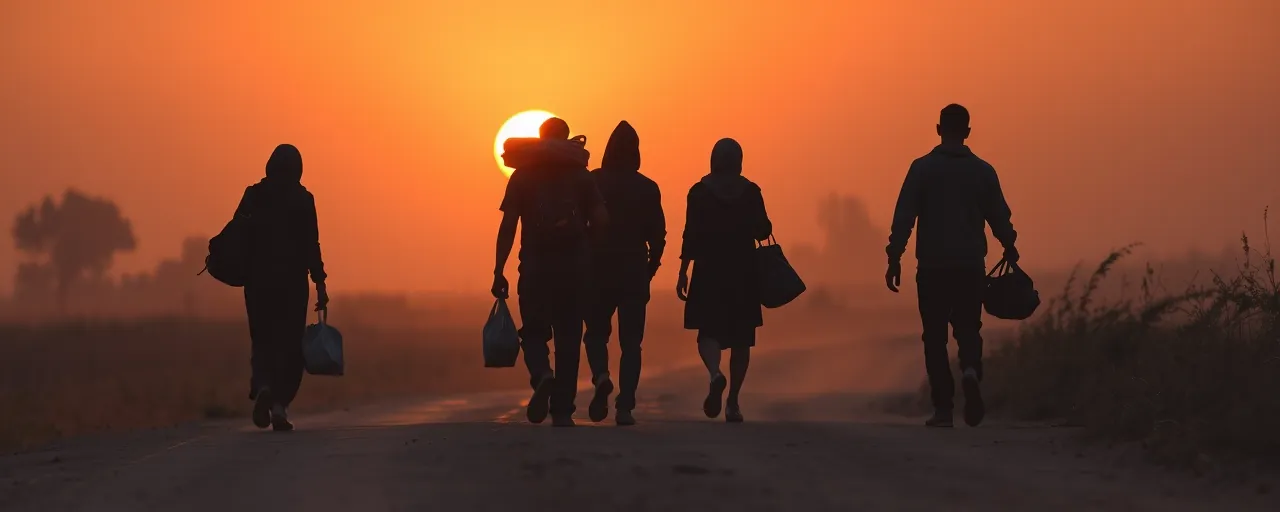A Risky Turn in the Quest for Peace
Ukraine’s struggle against Russia’s invasion rages on, with lives lost and communities shattered daily. Yet, the latest diplomatic pivot from Washington raises alarm. Secretary of State Marco Rubio, speaking in Türkiye, revealed President Trump’s plan to meet Vladimir Putin directly to resolve the conflict. This approach, centered on a single high-stakes summit, threatens to marginalize Ukraine’s voice and weaken the democratic alliances that have bolstered its resistance. Why would we entrust one meeting to decide the fate of a nation fighting for its existence?
For three years, Ukraine has faced Russia’s relentless aggression, enduring over 42,000 civilian casualties and the displacement of millions. This war’s ripple effects—energy crises, food shortages, and threats to global stability—demand a unified response. Rubio’s doubts about the Istanbul talks, where Ukrainian and Russian delegations met with Turkish hosts, dismiss the value of multilateral efforts. His assertion that only Trump and Putin can unlock progress feels like a step away from the collective strength that has sustained Ukraine’s fight.
Personal diplomacy has its place. History recalls moments like Carter’s Camp David success or Reagan’s talks with Gorbachev, where leaders forged paths to peace. Those victories, however, rested on inclusion and trust, not exclusion. Trump’s vision risks casting Ukraine as a mere spectator in its own survival. What does it say to a nation that has sacrificed so much when its future hinges on two men far from the front lines?
Ukraine’s Voice Must Lead
Rubio’s comments reveal a flawed premise: that peace can emerge without Ukraine at the heart of negotiations. Kyiv’s demands are clear—full territorial restoration, NATO security guarantees, and justice for Russian war crimes. Russia, unmoved since 2022, insists on Ukrainian neutrality and control over occupied regions like Crimea and Donetsk. A Trump-Putin summit could pressure Ukraine into concessions that undermine its sovereignty and reward Putin’s aggression, setting a dangerous precedent.
The human toll underscores the urgency of a better path. Over 12.7 million Ukrainians need humanitarian aid, with 9.2 million requiring medical care and 8.5 million lacking clean water. Reconstruction costs may surpass $524 billion. These figures represent real people—families displaced, children scarred, towns reduced to rubble. A deal that sidelines Ukraine’s needs risks entrenching suffering, leaving millions under occupation or in exile.
Some defend a Trump-Putin meeting, citing Trump’s urgency to end the war. Urgency, however, demands strategy, not shortcuts. Past efforts, from the Minsk agreements to 2022 Belarus talks, faltered due to distrust and unequal power. Excluding Ukraine from high-level discussions only deepens that divide. How can a nation heal when others dictate its destiny?
Strength in Collective Action
A vision rooted in democratic values calls for collective diplomacy, not solitary deals. NATO, the EU, and the UN must drive negotiations, ensuring Ukraine’s priorities shape the outcome. Polls reveal two-thirds of Democrats see a U.S. duty to defend Ukraine, reflecting a commitment to global justice and security. This perspective transcends politics—it recognizes that lasting peace depends on shared responsibility, not isolated summits.
Allied efforts, like France’s push for stronger sanctions and Germany’s EU defense debates, highlight the power of unity. A U.S.-Ukraine mineral rights deal in April 2025 strengthened Kyiv’s leverage through diplomacy, not exclusion. A UN- or OSCE-backed 30-day ceasefire could pave the way for talks while addressing urgent humanitarian needs. Why choose a divisive summit when we can unite the world to support Ukraine’s cause?
Opponents of collective diplomacy argue it moves too slowly, noting Putin’s refusal to meet Zelenskyy directly and the stalled Istanbul talks. Yet, true peace requires durability, not haste. A Trump-Putin deal risks fracturing NATO, alienating Europe, and emboldening authoritarian powers. With the war fueling energy crises and Russia’s alliances with China and Iran, only a global coalition can address the broader threats.
A Stand for Justice and Unity
Resolving this war demands unwavering commitment to justice. Ukraine’s fight embodies the principle that no nation’s might can override another’s right. Supporting Kyiv means amplifying its agency through diplomacy, not diminishing it in a summit. Rubio’s plan risks legitimizing Russia’s aggression and weakening the alliances that counter authoritarianism worldwide.
The human cost compels action. Each day of delay brings more deaths, more destruction. A strategy grounded in democratic values calls for coordinated sanctions, robust aid, and talks that center Ukraine’s sovereignty. The world watches—will we champion democracy or let one meeting reshape the future?
This is a moment for resolve. Let’s stand with Ukraine, rallying global partners to secure a just peace. The path is challenging, but together, we can forge a future where sovereignty and humanity prevail.
